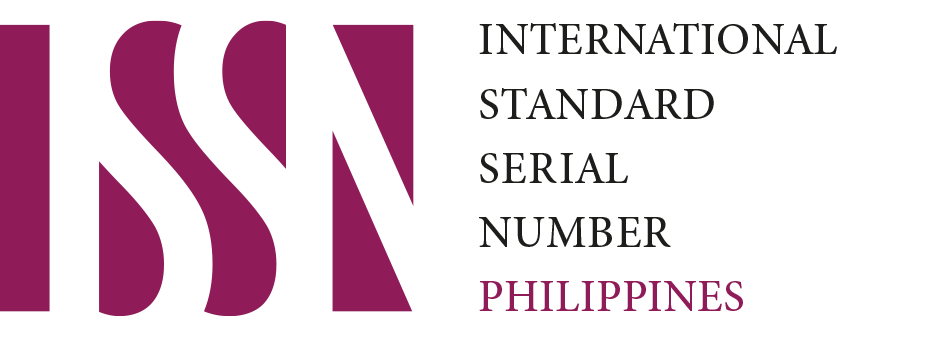Subject-Specific Preparedness in Social Work Licensure Exams: Are Students Equally Prepared?
Keywords:
Level of Preparedness, Human Behavior and Social Environment (HBSE), Social Welfare Policies, Programs, and Services (SWPP), Social Work Methods (SWM), Social Work Licensure Examination (SWLE)Abstract
This study examined the preparedness of the first graduating class of a Bachelor of Science in Social Work (BSSW) program at a State University in Claveria, Misamis Oriental, Philippines, in taking the Social Worker Licensure Examination (SWLE). Researchers used a descriptive-comparative design to assess 106 third-year students' performance across three SWLE areas: Human Behavior & Social Environment (HBSE), Social Welfare Policies & Programs (SWPP), and Social Work Methods (SWM). The findings showed that most students are unprepared in the three (3) subject areas. Moreover, with p<0.0001, significant differences in student performance were found, with SWPP (knowledge-based) scoring highest, followed by HBSE and then SWM. Several factors may explain these variations, including subject complexity, teaching methods that potentially benefited HBSE with interactive learning, student interest and prior knowledge, and curriculum sequencing, showing a strong HBSE foundation being crucial for SWM. The study recommends incorporating interactive learning strategies in HBSE online courses, catering to diverse learning styles, and leveraging student interest. Additionally, reviewing curriculum sequencing and implementing ongoing evaluation and faculty development programs could better prepare students for the SWLE and their social work careers.
Downloads
References
Alonzo, J. R. (2017). Discriminant analysis of Social Work's performance in the licensure examination. https://tinyurl.com/bdh78bmd
Apgar, D., & Luquet, W. (2022). Linking social work licensing exam content to educational competencies: Poor reliability challenges the path to licensure. Research on Social Work Practice, 33(1), 66–75. https://doi.org/10.1177/10497315221116123
Barrot, J. S., Llenares, I. I., & Del Rosario, L. S. (2021). Students’ online learning challenges during the pandemic and how they cope with them: The case of the Philippines. Education and Information Technologies, 26(6), 7321–7338. https://doi.org/10.1007/s10639-021-10589-x
Barry, C. A. (2020). David Ausubel (1918-2008). In R. J. Sternberg & S. B. Kaufman (Eds.), Encyclopedia of Psychology and Law (Vol. 2, pp. 221-222). SAGE Publications.
Bautista, R. (2022, March 25). Students open up about having Face-To-Face classes again. NYLON MANILA. https://nylonmanila.com/college-students-thoughts-face-to-face-classes-again/
Brod, G. (2021). Toward an understanding of when prior knowledge helps or hinders learning. Npj Science of Learning, 6(1). https://doi.org/10.1038/s41539-021-00103-w
Castex, G., Senreich, E., Phillips, N. K., Miller, C. M., & Mazza, C. (2018). Microaggressions and racial privilege within the social work profession: The social work licensing examinations. Journal of Ethnic & Cultural Diversity in Social Work, 28(2), 211–228. https://doi.org/10.1080/15313204.2018.1555498
Cherry, K. (2023, January 10). The 4 Major Personality Perspectives. Very Well Mind. https://www.verywellmind.com/personality-perspectives-2795950
Chukwuemeka, E. S. (2022, March 15). Why Students Fail Examinations: 9 major reasons. Bscholarly. https://bscholarly.com/why-students-fail-examinations/
Dizon, R. J. J., & Errabo, D. D. R. (2022). Challenges and Opportunities of Online Learning in the Philippine Context: Thriving in the New Normal. IC4E ’22: Proceedings of the 2022 13th International Conference on E-Education, E-Business, E-Management, and E-Learning. https://doi.org/10.1145/3514262.3514318
Edwards, E. J. (2021, October 17). Anxiety can affect academic performance. Here are 10 things parents and teachers can do to relieve the pressure. The Conversation. https://theconversation.com/anxiety-can-affect-academic-performance-here-are-10-things-parents-and-teachers-can-do-to-relieve-the-pressure-168837
Emerson, M. S. (2022, September 29). 14 Tips for Test Taking Success. Harvard Summer School. https://summer.harvard.edu/blog/14-tips-for-test-taking-success/
Field, A. (2013). Discovering statistics using SPSS (4th ed.).
Gillette, H. (2022, May 20). Theories of personality: These are the 6 main frameworks. Psych Central. https://psychcentral.com/health/personality-theories-in-psychology
Holtzman, M. (2008). Demystifying Application-Based Multiple-Choice Questions. College Teaching, 56(2), 114–120. http://www.jstor.org/stable/20695189
Johnson, D. (2017). The Role of Teachers in Motivating Students to Learn. BU Journal of Graduate Studies in Education, Volume 9 (Issue 1). https://files.eric.ed.gov/fulltext/EJ1230415.pdf
Kelland, M. D. (2022, December 2). Methods of Studying Personality. LibreTexts Libraries. https://tinyurl.com/y7unrcjj
Kiser, S. (2021, June 18). Tools to Promote Student Ownership of Learning. https://www.teachhub.com/classroom-management/2021/06/tools-to-promote-student-ownership-of-learning/
Nasib, T. (2017, October 14). Educational Psychology: Why do students forget the content they learn? Somi. https://mysominotes.wordpress.com/2017/10/14/educational-psychology-why-do-students-forget-the-content-they-learn/#comment-580
Nienow, M. C. (2021). Licensing. National Association of Social Workers Press and Oxford University Press. https://doi.org/10.1093/acrefore/9780199975839.013.225
Oxford Learning. (2018, April 10). I Study Hard, So Why Do I Get Bad Grades? https://www.oxfordlearning.com/i-study-hard-but-still-get-bad-grades/
Pandey, S. (2023, April 16). Top Reasons Why Students Fail in Exams. The Times of India. https://timesofindia.indiatimes.com/education/news/top-reasons-why-students-fail-in-exams/articleshow/99534063.cms
PRC Board. (2022, September 28). Performance of Schools: September 2022 Social Worker Board Exam Results. https://tinyurl.com/5n98mw6x
Ramirez, G. (2017, April 20). Students may forget relevant information in order to protect their own psyches. Science Daily. https://www.sciencedaily.com/releases/2017/04/170420090300.htm
Students may forget relevant information in order to protect their own psyches. (2017, April 17). ScienceDaily. https://www.sciencedaily.com/releases/2017/04/170420090300.htm
The Relationship Between Anxiety and Learning Difficulties. (2021, March 23). Learning Center. https://www.hillcenter.org/the-relationship-between-anxiety-and-learning-difficulties/
University of Washington. (2024, July 3). Engaging students - Teaching@UW.https://teaching.washington.edu/topics/engaging-students-in-learning/
Downloads
Published
Issue
Section
License
Copyright (c) 2024 Balangkas: An International Multidisciplinary Research Journal

This work is licensed under a Creative Commons Attribution-NonCommercial 4.0 International License.
Authors retain copyright to their work. However, by submitting to Balangkas, authors grant the journal the right to publish their article under the Creative Commons Attribution–NonCommercial 4.0 International License (CC BY-NC 4.0).









